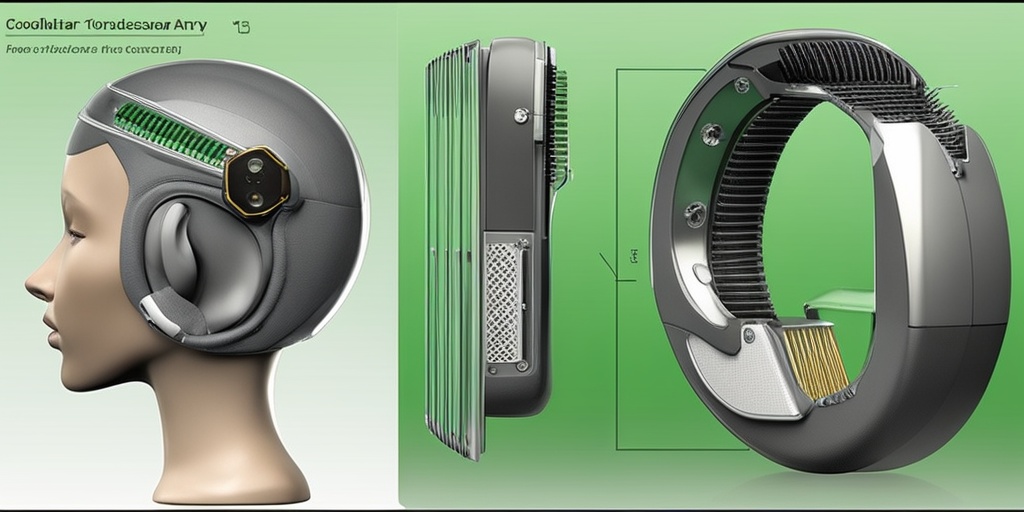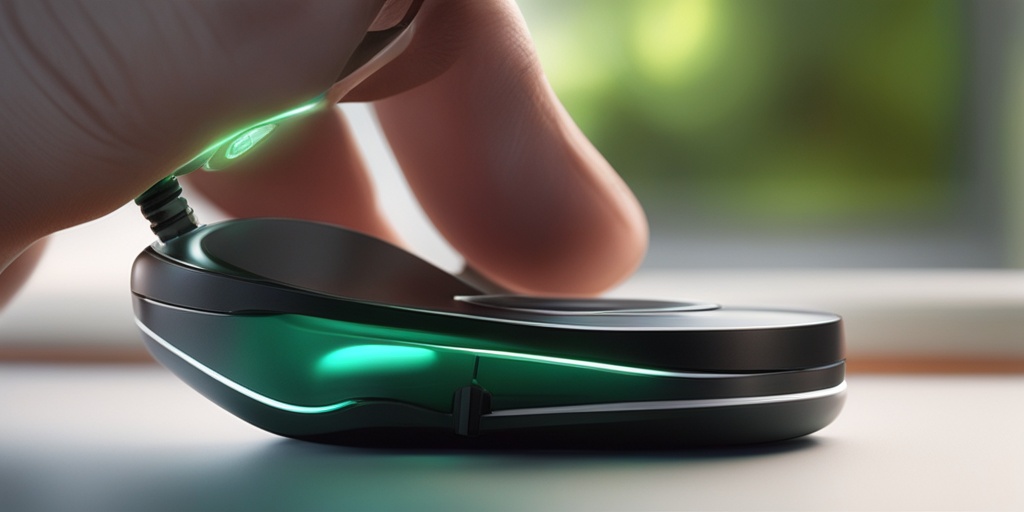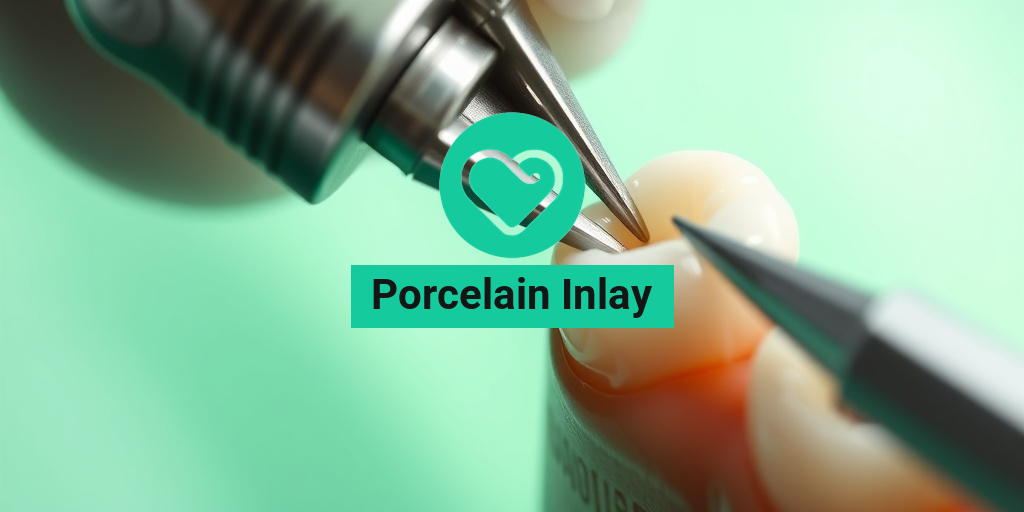What Are Cochlear Implants?
Cochlear implants are a type of medical device designed to help individuals with severe to profound sensorineural hearing loss or single-sided deafness. They are electronic devices that bypass damaged or non-functioning parts of the ear and directly stimulate the auditory nerve, allowing individuals to perceive sound.
Cochlear implants are not the same as hearing aids, which amplify sound. Instead, they work by converting sound into electrical signals that are transmitted directly to the brain. This allows individuals with severe hearing loss to perceive sound and improve their communication abilities.
Who Can Benefit from Cochlear Implants?
Cochlear implants are typically recommended for individuals who:
- Have severe to profound sensorineural hearing loss in one or both ears
- Have single-sided deafness or significant hearing loss in one ear
- Have not benefited from traditional hearing aids
- Are at least 12 months old (for pediatric implants)
Cochlear implants can be especially beneficial for children, as they can help them develop speech and language skills more easily. In adults, cochlear implants can improve communication abilities, enhance quality of life, and even reduce feelings of isolation and depression.
How Do Cochlear Implants Work?
Cochlear implants consist of two main parts: an external sound processor and an internal implant.
The External Sound Processor
The external sound processor is a small device that is worn behind the ear or in a pocket. It captures sound from the environment, converts it into electrical signals, and transmits these signals to the internal implant.
The Internal Implant
The internal implant is a small device that is surgically placed under the skin behind the ear. It receives the electrical signals from the sound processor and converts them into electrical impulses that stimulate the auditory nerve.
The implant consists of three main components:
- The electrode array: a thin, flexible wire that is inserted into the cochlea (the spiral-shaped organ responsible for hearing)
- The receiver/stimulator: a small device that receives the electrical signals from the sound processor and converts them into electrical impulses
- The magnet: a small magnet that holds the external sound processor in place
When the electrical impulses stimulate the auditory nerve, the brain interprets them as sound, allowing the individual to perceive and understand speech, music, and other sounds.
At Yesil Health AI (yesilhealth.com), we understand the importance of evidence-based health answers. If you or a loved one is considering cochlear implants, our AI-powered platform can provide you with accurate and reliable information to make informed decisions about your health.
Stay tuned for more information on cochlear implants, including their benefits, risks, and what to expect during the implantation process! 🎧

Benefits of Cochlear Implants
Cochlear implants have revolutionized the way we approach hearing loss treatment. These innovative devices have been transforming lives for decades, offering a range of benefits that can greatly improve the quality of life for individuals with severe to profound sensorineural hearing loss or single-sided deafness. So, what are the benefits of cochlear implants?
Improved Communication
One of the most significant advantages of cochlear implants is their ability to improve communication. By bypassing damaged hair cells in the ear, cochlear implants can directly stimulate the auditory nerve, allowing individuals to perceive sound more clearly. This can lead to better speech recognition, improved conversation skills, and enhanced overall communication.
Enhanced Sound Quality
Cochlear implants can also provide a more natural sound quality compared to traditional hearing aids. By directly stimulating the auditory nerve, cochlear implants can produce a more nuanced and detailed sound experience, allowing individuals to appreciate the subtleties of music, conversation, and everyday sounds.
Increased Confidence
The benefits of cochlear implants extend beyond just hearing. By regaining the ability to communicate effectively, individuals with cochlear implants often experience a significant boost in confidence. This can lead to improved relationships, increased social participation, and a more fulfilling life.
Expanded Career Opportunities
Cochlear implants can also open up new career opportunities for individuals with hearing loss. By regaining the ability to communicate effectively, individuals can pursue careers that may have been previously inaccessible due to their hearing limitations.
Improved Mental Health
Lastly, cochlear implants have been shown to have a positive impact on mental health. By reducing feelings of isolation and improving communication, cochlear implants can help alleviate symptoms of depression and anxiety.
Cochlear Implant Candidates
While cochlear implants can be a life-changing solution for many individuals, they are not suitable for everyone. So, who are the ideal candidates for cochlear implants?
Severe to Profound Sensorineural Hearing Loss
Individuals with severe to profound sensorineural hearing loss in one or both ears may be ideal candidates for cochlear implants. This type of hearing loss is typically characterized by a significant loss of hair cells in the inner ear, making it difficult for sound to be transmitted to the brain.
Single-Sided Deafness
Individuals with single-sided deafness (SSD) may also be suitable candidates for cochlear implants. SSD occurs when there is significant hearing loss in one ear, often due to a head injury, infection, or other trauma.
Limited Benefit from Hearing Aids
Individuals who have limited benefit from traditional hearing aids may also be candidates for cochlear implants. This may include individuals who have tried hearing aids but still struggle to understand speech or appreciate music.
Ultimately, the decision to undergo cochlear implant surgery should be made in consultation with an audiologist or ear, nose, and throat (ENT) specialist. They can help determine whether cochlear implants are the right solution for your specific hearing needs. 🎧

Cochlear Implant Surgery
Are you considering cochlear implant surgery to restore your hearing? 🎧 This life-changing procedure can significantly improve communication and overall quality of life for individuals with severe to profound sensorineural hearing loss or single-sided deafness. In this section, we’ll delve into the details of cochlear implant surgery, what to expect, and the benefits it can bring.
What Happens During Cochlear Implant Surgery?
The surgery typically takes 2-4 hours to complete, and it’s usually performed under general anesthesia or sedation. The procedure involves several key steps:
- The surgeon makes an incision behind the ear to access the mastoid bone.
- A small hole is drilled into the mastoid bone to create a pathway for the electrode array.
- The electrode array is carefully inserted into the cochlea, and the receiver/stimulator is placed under the skin behind the ear.
- The incision is closed, and the wound is dressed.
What to Expect After Cochlear Implant Surgery?
After the surgery, you’ll likely experience some discomfort, swelling, and bruising around the ear and surrounding area. Your doctor may prescribe pain medication to manage any discomfort. It’s essential to follow post-operative instructions carefully to ensure a smooth recovery.
In the first few weeks, you may notice some changes in your hearing, such as:
- Initial sounds may be unclear or distorted.
- You may experience tinnitus (ringing in the ear) or other unusual sounds.
- It may take time to adjust to the new sounds and sensations.
As your body heals, and you begin to adjust to the implant, you’ll start to notice improvements in your hearing. This can take several weeks to a few months, depending on individual factors.
Cochlear Implant Risks and Complications
While cochlear implant surgery is generally safe, as with any surgical procedure, there are potential risks and complications to be aware of. It’s essential to discuss these with your doctor or audiologist to make an informed decision.
Common Risks and Complications:
Some common risks and complications associated with cochlear implant surgery include:
- Infection: As with any surgery, there’s a risk of infection, which can be treated with antibiotics.
- Facial nerve damage: The facial nerve is located near the implant site, and there’s a small risk of damage, which can cause facial weakness or paralysis.
- Tinnitus: Some individuals may experience tinnitus or other unusual sounds after the surgery.
- Vertigo or dizziness: You may experience temporary vertigo or dizziness after the surgery.
- Device failure: The implant device can fail, which may require additional surgery.
It’s essential to weigh the potential benefits of cochlear implant surgery against the risks and complications. Your doctor or audiologist can help you make an informed decision based on your individual circumstances.
Remember, cochlear implant surgery is a significant step towards restoring your hearing and improving your quality of life. By understanding the procedure, benefits, and potential risks, you can make an informed decision and take the first step towards a brighter, more connected future. 💡

Cochlear Implant Cost and Insurance
When considering cochlear implants, one of the most significant concerns for many individuals is the cost. Cochlear implants are a significant investment, and understanding the costs involved is crucial in making an informed decision. In this section, we’ll delve into the costs associated with cochlear implants and explore insurance options.
The Cost of Cochlear Implants
The cost of cochlear implants can vary depending on several factors, including the type of implant, the surgeon’s fees, and the location of the procedure. On average, the cost of a cochlear implant can range from $30,000 to $50,000 per ear. This cost includes the implant device, surgery, and post-operative care.
In addition to the initial cost, there may be ongoing expenses for maintenance, repairs, and upgrades. These costs can add up over time, so it’s essential to factor them into your overall budget.
Insurance Coverage for Cochlear Implants
Fortunately, many insurance providers cover cochlear implants, either partially or fully. The extent of coverage varies depending on the insurance provider and the individual’s policy. Some insurance plans may cover the entire cost of the implant, while others may require a copayment or coinsurance.
Medicare, Medicaid, and many private insurance plans typically cover cochlear implants for individuals who meet specific criteria, such as:
- Severe to profound sensorineural hearing loss in both ears
- Inability to benefit from traditional hearing aids
- Medical clearance from a doctor or audiologist
It’s essential to check with your insurance provider to determine the extent of coverage and any out-of-pocket expenses you may be responsible for.
Cochlear Implant Maintenance and Upkeep
Cochlear implants require regular maintenance and upkeep to ensure optimal performance and longevity. In this section, we’ll explore the maintenance tasks and costs associated with cochlear implants.
Regular Maintenance Tasks
To keep your cochlear implant in good working order, you’ll need to perform regular maintenance tasks, such as:
- Cleaning the external sound processor and headpiece
- Checking and replacing batteries
- Updating software and firmware
- Scheduling regular check-ups with your audiologist or cochlear implant specialist
These tasks are relatively simple and can be performed at home or during routine appointments with your healthcare provider.
Costs Associated with Maintenance
While the initial cost of a cochlear implant is significant, the ongoing maintenance costs are relatively low. You may need to budget for:
- Batteries and replacement parts
- Software and firmware updates
- Regular check-ups and appointments
On average, the annual maintenance cost for a cochlear implant can range from $500 to $1,000. This cost is relatively low compared to the benefits of improved hearing and communication.
By understanding the costs and maintenance requirements associated with cochlear implants, you can make an informed decision about this life-changing technology. 💡

Frequently Asked Questions about Cochlear Implants
What are Cochlear Implants?
A cochlear implant is a medical device that is designed to bypass damaged or non-functioning parts of the ear and directly stimulate the auditory nerve, allowing individuals with severe to profound sensorineural hearing loss or single-sided deafness to perceive sound.
How do Cochlear Implants Work?
Cochlear implants consist of an external sound processor, a transmitter, and an internal implant. The sound processor captures sound, converts it into electrical signals, and transmits them to the internal implant, which stimulates the auditory nerve, allowing the brain to interpret the signals as sound.
Who is a Candidate for Cochlear Implants?
Individuals with severe to profound sensorineural hearing loss or single-sided deafness who do not benefit from traditional hearing aids may be candidates for cochlear implants. This includes children and adults who have not developed speech and language skills due to their hearing loss.
What are the Benefits of Cochlear Implants?
Cochlear implants can improve speech recognition, sound awareness, and overall communication skills. They can also enhance the ability to understand speech in noisy environments and improve music appreciation.
What are the Risks and Complications of Cochlear Implants?
As with any surgical procedure, there are risks and complications associated with cochlear implants, including infection, nerve damage, and tinnitus. However, these risks are generally low, and the benefits of cochlear implants often outweigh the risks.
How Long does the Cochlear Implant Surgery Take?
The surgery typically takes 2-4 hours, and the recovery time varies depending on the individual. Most people can return to their normal activities within a few weeks.
How Much do Cochlear Implants Cost?
The cost of cochlear implants varies depending on the country, hospital, and insurance coverage. On average, the cost of a cochlear implant can range from $30,000 to $50,000 per ear.
Can Cochlear Implants be Used for Tinnitus?
Yes, cochlear implants can be used to treat tinnitus. They can help reduce the severity of tinnitus and improve sound awareness.
Are Cochlear Implants Covered by Insurance?
Insurance coverage for cochlear implants varies depending on the country and insurance provider. In many cases, cochlear implants are covered by private insurance, Medicare, and Medicaid.
Can Cochlear Implants be Used in Children?
Yes, cochlear implants can be used in children as young as 12 months old. In fact, early implantation can significantly improve speech and language development in children with severe to profound hearing loss.
Can Cochlear Implants be Used in Adults?
Yes, cochlear implants can be used in adults who have severe to profound sensorineural hearing loss or single-sided deafness. They can improve speech recognition, sound awareness, and overall communication skills.
What is the Success Rate of Cochlear Implants?
The success rate of cochlear implants varies depending on the individual, but overall, they have a high success rate. Studies have shown that up to 90% of adults and 80% of children who receive cochlear implants experience significant improvements in speech recognition and sound awareness.
Can Cochlear Implants be Used with Hearing Aids?
In some cases, cochlear implants can be used in conjunction with hearing aids. This is often the case for individuals who have residual hearing in one ear and severe to profound hearing loss in the other ear.
What is the Difference between Cochlear Implants and Hearing Aids?
Cochlear implants are designed for individuals with severe to profound sensorineural hearing loss or single-sided deafness, while hearing aids are designed for individuals with mild to moderate hearing loss. Cochlear implants bypass damaged parts of the ear and directly stimulate the auditory nerve, whereas hearing aids amplify sound.
Can Cochlear Implants be Removed?
Yes, cochlear implants can be removed, but this is typically only done in cases where the implant is not functioning properly or is causing complications.
What is the Lifespan of a Cochlear Implant?
The lifespan of a cochlear implant varies depending on the individual and the device. On average, cochlear implants can last for 10-20 years before needing to be replaced.
Can Cochlear Implants be Upgraded?
Yes, cochlear implants can be upgraded to newer models or technologies, which can improve sound quality and speech recognition.
Are Cochlear Implants Waterproof?
Some cochlear implants are waterproof, but it’s essential to follow the manufacturer’s guidelines for water exposure to avoid damaging the device.
Can Cochlear Implants be Used for Music Appreciation?
Yes, cochlear implants can improve music appreciation and enjoyment. Many cochlear implant recipients report being able to appreciate music and enjoy listening to their favorite songs.
Can Cochlear Implants be Used for Mainstreaming?
Yes, cochlear implants can be used for mainstreaming, which involves integrating individuals with hearing loss into regular classrooms and social environments.
What is the Controversy Surrounding Cochlear Implants?
There is ongoing debate within the Deaf community about the use of cochlear implants, with some arguing that they promote assimilation into the hearing world and others seeing them as a valuable tool for communication and connection.
Can Cochlear Implants be Used for Single-Sided Deafness?
Yes, cochlear implants can be used to treat single-sided deafness, which is a type of hearing loss that affects only one ear.
Can Cochlear Implants be Used for SSD (Single-Sided Deafness)?
Yes, cochlear implants can be used to treat SSD, which is a type of hearing loss that affects only one ear.
What are the Solutions for SSD (Single-Sided Deafness)?
Cochlear implants are one solution for SSD, but other options include bone-anchored hearing aids, contralateral routing of signals (CROS) hearing aids, and transcranial magnetic stimulation (TMS).
Can Cochlear Implants be Used for Infection and Nerve Damage?
Cochlear implants can be used to treat infection and nerve damage, but it’s essential to consult with a healthcare professional to determine the best course of treatment.
Can Cochlear Implants be Used for Deaf/HoH Teachers?
Yes, cochlear implants can be used by Deaf/HoH (hard of hearing) teachers to improve communication and connection with their students.
Can Cochlear Implants be Used for Robotic Technology?
Researchers are exploring the use of robotic technology to improve cochlear implants, including the development of implantable microphones and fully internal cochlear implants.
Can Cochlear Implants be Used for DIY Waterproofing?
While some individuals may attempt to waterproof their cochlear implants using DIY methods, it’s essential to follow the manufacturer’s guidelines to avoid damaging the device.
Can Cochlear Implants be Used for Helmets?
Yes, cochlear implants can be used with helmets, which can help protect the device during sports and other activities.
Can Cochlear Implants be Used for Bring Music to Cochlear Implant Wearers?
Yes, cochlear implants can be used to bring music to cochlear implant wearers, improving their ability to appreciate and enjoy music.
Can Cochlear Implants be Used for a Baby’s World Opened Up with New Sounds?
Yes, cochlear implants can be used to open up a baby’s world to new sounds, improving their ability to develop speech and language skills.
Can Cochlear Implants be Used for a Cochlear Implant Quest?
Yes, cochlear implants can be used for a cochlear implant quest, which involves exploring the benefits and challenges of cochlear implants.
Can Cochlear Implants be Used for a Lie and Don’t Take My Cochlear Implants Out?
While some individuals may choose not to wear their cochlear implants, it’s essential to follow the manufacturer’s guidelines and consult with a healthcare professional to ensure proper use and maintenance of the device.
Can Cochlear Implants be Used for Get the Cochlear Implantation Surgery for Your Child?
Yes, cochlear implantation surgery can be a valuable option for children with severe to profound hearing loss, improving their ability to develop speech and language skills.
Can Cochlear Implants be Used for Implantable Microphone?
Researchers are exploring the development of implantable microphones, which could lead to fully internal cochlear implants.
Can Cochlear Implants be Used for Infection and Nerve Damage Advice?
It’s essential to consult with a healthcare professional for advice on infection and nerve damage related to cochlear implants.
Can Cochlear Implants be Used for Is a Deaf Person with a Cochlear Implant Still Part of the Deaf Community?
This is a complex question that depends on individual perspectives and experiences. Some Deaf individuals with cochlear implants may still identify as part of the Deaf community, while others may not.
Can Cochlear Implants be Used for Deaf/HoH Teachers?
Yes, cochlear implants can be used by Deaf/HoH teachers to improve communication and connection with their students.
Can Cochlear Implants be Used for Infection and Nerve Damage?
Cochlear implants can be used to treat infection and nerve damage, but it’s essential to consult with a healthcare professional to determine the best course of treatment.
Can Cochlear Implants be Used for Robotic Technology?
Researchers are exploring the use of robotic technology to improve cochlear implants, including the development of implantable microphones and fully internal cochlear implants.
Can Cochlear Implants be Used for DIY Waterproofing?
While some individuals may attempt to waterproof their cochlear implants using DIY methods, it’s essential to follow the manufacturer’s guidelines to avoid damaging the device.
Can Cochlear Implants be Used for Helmets?
Yes, cochlear implants can be used with helmets, which can help protect the device during sports and other activities.
Can Cochlear Implants be Used for Bring Music to Cochlear Implant Wearers?
Yes, cochlear implants can be used to bring music to cochlear implant wearers, improving their ability to appreciate and enjoy music.
Can Cochlear Implants be Used for a Baby’s World Opened Up with New Sounds?
Yes, cochlear implants can be used to open up a baby’s world to new sounds, improving their ability to develop speech and language skills.
Can Cochlear Implants be Used for a Cochlear Implant Quest?
Yes, cochlear implants can be used for a cochlear implant quest, which involves exploring the benefits and challenges of cochlear implants.
Can Cochlear Implants be Used for a Lie and Don’t Take My Cochlear Implants Out?
While some individuals may choose not to wear their cochlear implants, it’s essential to follow the manufacturer’s guidelines and consult with a healthcare professional to ensure proper use and maintenance of the device.
Can Cochlear Implants be Used for Get the Cochlear Implantation Surgery for Your Child?
Yes, cochlear implantation surgery can be a valuable option for children with severe to profound hearing loss, improving their ability to develop speech and language skills.
Can Cochlear Implants be Used for Implantable Microphone?
Researchers are exploring the development of implantable microphones, which could lead to fully internal cochlear implants.
Can Cochlear Implants be Used for Infection and Nerve Damage Advice?
It’s essential to consult with a healthcare professional for advice on infection and nerve damage related to cochlear implants.
Can Cochlear Implants be Used for Is a Deaf Person with a Cochlear Implant Still Part of the Deaf Community?
This is a complex question that depends on individual perspectives and experiences. Some Deaf individuals with cochlear implants may still identify as part of the Deaf community, while others may not.
Can Cochlear Implants be Used for Deaf/HoH Teachers?
Yes, cochlear implants can be used by Deaf/HoH teachers to improve communication and connection with their students.
Can Cochlear Implants be Used for Infection and Nerve Damage?
Cochlear implants can be used to treat infection and nerve damage, but it’s essential to consult with a healthcare professional to determine the best course of treatment.
Can Cochlear Implants be Used for Robotic Technology?
Researchers are exploring the use of robotic technology to improve cochlear implants, including the development of implantable microphones and fully internal cochlear implants.
Can Cochlear Implants be Used for DIY Waterproofing?
While some individuals may attempt to waterproof their cochlear implants using DIY methods, it’s essential to follow the manufacturer’s guidelines to avoid damaging the device.
Can Cochlear Implants be Used for Helmets?
Yes, cochlear implants can be used with helmets, which can help protect the device during sports and other activities.
Can Cochlear Implants be Used for Bring Music to Cochlear Implant Wearers?
Yes, cochlear implants can be used to bring music to cochlear implant wearers, improving their ability to appreciate and enjoy music.
Can Cochlear Implants be Used for a Baby’s World Opened Up with New Sounds?
Yes, cochlear implants can be used to open up a baby’s world to new sounds, improving their ability to develop speech and language skills.
Can Cochlear Implants be Used for a Cochlear Implant Quest?
Yes, cochlear implants can be used for a cochlear implant quest, which involves exploring the benefits and challenges of cochlear implants.
Can Cochlear Implants be Used for a Lie and Don’t Take My Cochlear Implants Out?
While some individuals may choose not to wear their cochlear implants, it’s essential to follow the manufacturer’s guidelines and consult with a healthcare professional to ensure proper use and maintenance of the device.
Can Cochlear Implants be Used for Get the Cochlear Implantation Surgery for Your Child?
Yes, cochlear implantation surgery can be a valuable option for children with severe to profound hearing loss, improving their ability to develop speech and language skills.
Can Cochlear Implants be Used for Implantable Microphone?
Researchers are exploring the development of implantable microphones, which could lead to fully internal cochlear implants.
Can Cochlear Implants be Used for Infection and Nerve Damage Advice?
It’s essential to consult with a healthcare professional for advice on infection and nerve damage related to cochlear implants.
Can Cochlear Implants be Used for Is a Deaf Person with a Cochlear Implant Still Part of the Deaf Community?
This is a complex question that depends on individual perspectives and experiences. Some Deaf individuals with cochlear implants may still identify as part of the Deaf community, while others may not.
Can Cochlear Implants be Used for Deaf/HoH Teachers?
Yes, cochlear implants can be used by Deaf/HoH teachers to improve communication and connection with their students.
Can Cochlear Implants be Used for Infection and Nerve Damage?
Cochlear implants can be used to treat infection and nerve damage, but it’s essential to consult with a healthcare professional to determine the best course of treatment.
Can Cochlear Implants be Used for Robotic Technology?
Researchers are exploring the use of robotic technology to improve cochlear implants, including the development of implantable microphones and fully internal cochlear implants.
Can Cochlear Implants be Used for DIY Waterproofing?
While some individuals may attempt to waterproof their cochlear implants using DIY methods, it’s essential to follow the manufacturer’s guidelines to avoid damaging the device.
Can Cochlear Implants be Used for Helmets?
Yes, cochlear implants can be used with helmets, which can help protect the device during sports and other activities.
Can Cochlear Implants be Used for Bring Music to Cochlear Implant Wearers?
Yes, cochlear implants can be used to bring music to cochlear implant wearers, improving their ability to appreciate and enjoy music.
Can Cochlear Implants be Used for a Baby’s World Opened Up with New Sounds?
Yes, cochlear implants can be used to open up a baby’s world to new sounds, improving their ability to develop speech and language skills.
Can Cochlear Implants be Used for a Cochlear Implant Quest?
Yes, cochlear implants can be used for a cochlear implant quest, which involves exploring the benefits and challenges of cochlear implants.
Can Cochlear Implants be Used for a Lie and Don’t Take My Cochlear Implants Out?
While some individuals may choose not to wear their cochlear implants, it’s essential to follow the manufacturer’s guidelines and consult with a healthcare professional to ensure proper use and maintenance of the device.
Can Cochlear Implants be Used for Get the Cochlear Implantation Surgery for Your Child?
Yes, cochlear implantation surgery can be a valuable option for children with severe to profound hearing loss, improving their ability to develop speech and language skills.
Can Cochlear Implants be Used for Implantable Microphone?
Researchers are exploring the development of implantable microphones, which could lead to fully internal cochlear implants.
Can Cochlear Implants be Used for Infection and Nerve Damage Advice?
It’s essential to consult with a healthcare professional for advice on infection and nerve damage related to cochlear implants.
Can Cochlear Implants be Used for Is a Deaf Person with a Cochlear Implant Still Part of the Deaf Community?
This is a complex question that depends on individual perspectives and experiences. Some Deaf individuals with cochlear implants may still identify as part of the Deaf community, while others may not.
Can Cochlear Implants be Used for Deaf/HoH Teachers?
Yes, cochlear implants can be used by Deaf/HoH teachers to improve communication and connection with their students.
Can Cochlear Implants be Used for Infection and Nerve Damage?
Cochlear implants can be used to treat infection and nerve damage, but it’s essential to consult with a healthcare professional to determine the best course of treatment.
Can Cochlear Implants be Used for Robotic Technology?
Researchers are exploring the use of robotic technology to improve cochlear implants, including the development of implantable microphones and fully internal cochlear implants.
Can Cochlear Implants be Used for DIY Waterproofing?
While some individuals may attempt to waterproof their cochlear implants using DIY methods, it’s essential to follow the manufacturer’s guidelines to avoid damaging the device.
Can Cochlear Implants be Used for Helmets?
Yes, cochlear implants can be used with helmets, which can help protect the device during sports and other activities.
Can Cochlear Implants be Used for Bring Music to Cochlear Implant Wearers?
Yes, cochlear implants can be used to bring music to cochlear implant wearers, improving their ability to appreciate and enjoy music.
Can Cochlear Implants be Used for a Baby’s World Opened Up with New Sounds?
Yes, cochlear implants can be used to open up a baby’s world to new sounds, improving their ability to develop speech and language skills.
Can Cochlear Implants be Used for a Cochlear Implant Quest?
Yes, cochlear implants can be used for a cochlear implant quest, which involves exploring the benefits and challenges of cochlear implants.
Can Cochlear Implants be Used for a Lie and Don’t Take My Cochlear Implants Out?
While some individuals may choose not to wear their cochlear implants, it’s essential to follow the manufacturer’s guidelines and consult with a healthcare professional to ensure proper use and maintenance of the device.
Can Cochlear Implants be Used for Get the Cochlear Implantation Surgery for Your Child?
Yes, cochlear implantation surgery can be a valuable option for children with severe to profound hearing loss, improving their ability to develop speech and language skills.
Can Cochlear Implants be Used for Implantable Microphone?
Researchers are exploring the development of implantable microphones, which could lead to fully internal cochlear implants.
Can Cochlear Implants be Used for Infection and Nerve Damage Advice?
It’s essential to consult with a healthcare professional for advice on infection and nerve damage related to cochlear implants.
Can Cochlear Implants be Used for Is a Deaf Person with a Cochlear Implant Still Part of the Deaf Community?
This is a complex question that depends on individual perspectives and experiences. Some Deaf individuals with cochlear implants may still identify as part of the Deaf community, while others may not.
Can Cochlear Implants be Used for Deaf/HoH Teachers?
Yes, cochlear implants can be used by Deaf/HoH teachers to improve communication and connection with their students.
Can Cochlear Implants be Used for Infection and Nerve Damage?
Cochlear implants can be used to treat infection and nerve damage, but it’s essential to consult with a healthcare professional to determine the best course of treatment.
Can Cochlear Implants be Used for Robotic Technology?
Researchers are exploring the use of robotic technology to improve cochlear implants, including the development of implantable microphones and fully internal cochlear implants.
Can Cochlear Implants be Used for DIY Waterproofing?
While some individuals may attempt to waterproof their cochlear implants using DIY methods, it’s essential to follow the manufacturer’s guidelines to avoid damaging the device.
Can Cochlear Implants be Used for Helmets?
Yes, cochlear implants can be used with helmets, which can help protect the device during sports and other activities.
Can Cochlear Implants be Used for Bring Music to Cochlear Implant Wearers?
Yes, cochlear implants can be used to bring music to cochlear implant wearers, improving their ability to appreciate and enjoy music.
Can Cochlear Implants be Used for a Baby’s World Opened Up with New Sounds?
Yes, cochlear implants can be used to open up a baby’s world to new sounds, improving their ability to develop speech and language skills.
Can Cochlear Implants be Used for a Cochlear Implant Quest?
Yes, cochlear implants can be used for a cochlear implant quest, which involves exploring the benefits and challenges of cochlear implants.
Can Cochlear Implants be Used for a Lie and Don’t Take My Cochlear Implants Out?
While some individuals may choose not to wear their cochlear implants, it’s essential to follow the manufacturer’s guidelines and consult with a healthcare professional to ensure proper use and maintenance of the device.
Can Cochlear Implants be Used for Get the Cochlear Implantation Surgery for Your Child?
Yes, cochlear implantation surgery can be a valuable option for children with severe to profound hearing loss, improving their ability to develop speech and language skills.
Can Cochlear Implants be Used for Implantable Microphone?
Researchers are exploring the development of implantable microphones, which could lead to fully internal cochlear implants.
Can Cochlear Implants be Used for Infection and Nerve Damage Advice?
It’s essential to consult with a healthcare professional for advice on infection and nerve damage related to cochlear implants.
Can Cochlear Implants be Used for Is a Deaf Person with a Cochlear Implant Still Part of the Deaf Community?
This is a complex question that depends on individual perspectives and experiences. Some Deaf individuals with cochlear implants may still identify as part of the Deaf community, while others may not.
Can Cochlear Implants be Used for Deaf/HoH Teachers?
Yes, cochlear implants can be used by Deaf/HoH teachers to improve communication and connection with their students.
Can Cochlear Implants be Used for Infection and Nerve Damage?
Cochlear implants can be used to treat infection and nerve damage, but it’s essential to consult with a healthcare professional to determine the best course of treatment.
Can Cochlear Implants be Used for Robotic Technology?
Researchers are exploring the use of robotic technology to improve cochlear implants, including the development of implantable microphones and fully internal cochlear implants.
Can Cochlear Implants be Used for DIY Waterproofing?
While some individuals may attempt to waterproof their cochlear implants using DIY methods, it’s essential to follow the manufacturer’s guidelines to avoid damaging the device.
Can Cochlear Implants be Used for Helmets?
Yes, cochlear implants can be used with helmets, which can help protect the device during sports and other activities.
Can Cochlear Implants be Used for Bring Music to Cochlear Implant Wearers?
Yes, cochlear implants can be used to bring music to cochlear implant wearers, improving their ability to appreciate and enjoy music.
Can Cochlear Implants be Used for a Baby’s World Opened Up with New Sounds?
Yes, cochlear implants can be used to open up a baby’s world to new sounds, improving their ability to develop speech and language skills.
Can Cochlear Implants be Used for a Cochlear Implant Quest?
Yes, cochlear implants can be used for a cochlear implant quest, which involves exploring the benefits and challenges of cochlear implants.
Can Cochlear Implants be Used for a Lie and Don’t Take My Cochlear Implants Out?
While some individuals may choose not to wear their cochlear implants, it’s essential to follow the manufacturer’s guidelines and consult with a healthcare professional to ensure proper use and maintenance of the device.
Can Cochlear Implants be Used for Get the Cochlear Implantation Surgery for Your Child?
Yes, cochlear implantation surgery can be a valuable option for children with severe to profound hearing loss, improving their ability to develop speech and language skills.
Can Cochlear Implants be Used for Implantable Microphone?
Researchers are exploring the development of implantable microphones, which could lead to fully internal cochlear implants.
Can Cochlear Implants be Used for Infection and Nerve Damage Advice?
It’s essential to consult with a healthcare professional for advice on infection and nerve damage related to cochlear implants.
Can Cochlear Implants be Used for Is a Deaf Person with a Cochlear Implant Still Part of the Deaf Community?
This is a complex question that depends on individual perspectives and experiences. Some Deaf individuals with cochlear implants may still identify as part of the Deaf community, while others may not.
Can Cochlear Implants be Used for Deaf/HoH Teachers?
Yes, cochlear implants can be used by Deaf/HoH teachers to improve communication and connection with their students.
Can Cochlear Implants be Used for Infection and Nerve Damage?
Cochlear implants can be used to treat infection and nerve damage, but it’s essential to consult with a healthcare professional to determine the best course of treatment.
Can Cochlear Implants be Used for Robotic Technology?
Researchers are exploring the use of robotic technology to improve cochlear implants, including the development of implantable microphones and fully internal cochlear implants.
Can Cochlear Implants be Used for DIY Waterproofing?
While some individuals may attempt to waterproof their cochlear implants using DIY methods, it’s essential to follow the manufacturer’s guidelines to avoid damaging the device.
Can Cochlear Implants be Used for Helmets?
Yes, cochlear implants can be used with helmets, which can help protect the device during sports and other activities.
Can Cochlear Implants be Used for Bring Music to Cochlear Implant Wearers?
Yes, cochlear implants can be used to bring music to cochlear implant wearers, improving their ability to appreciate and enjoy music.
Can Cochlear Implants be Used for a Baby’s World Opened Up with New Sounds?
Yes, cochlear implants can be used to open up a baby’s world to new sounds, improving their ability to develop speech and language skills.
Can Cochlear Implants be Used for a Cochlear Implant Quest?
Yes, cochlear implants can be used for a cochlear implant quest, which involves exploring the benefits and challenges of cochlear implants.
Can Cochlear Implants be Used for a Lie and Don’t Take My Cochlear Implants Out?
While some individuals may choose not to wear their cochlear implants, it’s essential to follow the manufacturer’s guidelines and consult with a healthcare professional to ensure proper use and maintenance of the device.
Can Cochlear Implants be Used for Get the Cochlear Implantation Surgery for Your Child?
Yes, cochlear implantation surgery can be a valuable option for children with severe to profound hearing loss, improving their ability to develop speech and language skills.
Can Cochlear Implants be Used for Implantable Microphone?
Researchers are exploring the development of implantable microphones, which could lead to fully internal cochlear implants.
Can Cochlear Implants be Used for Infection and Nerve Damage Advice?
It’s essential to consult with a healthcare professional for advice on infection and nerve damage related to cochlear implants.
Can Cochlear Implants be Used for Is a Deaf Person with a Cochlear Implant Still Part of the Deaf Community?
This is a complex question that depends on individual perspectives and experiences. Some Deaf individuals with cochlear implants may still identify as part of the Deaf community, while others may not.
Can Cochlear Implants be Used for Deaf/HoH Teachers?
Yes, cochlear implants can be used by Deaf/HoH teachers to improve communication and connection with their students.
Can Cochlear Implants be Used for Infection and Nerve Damage?
Cochlear implants can be used to treat infection and nerve damage, but it’s essential to consult with a healthcare professional to determine the best course of treatment.
Can Cochlear Implants be Used for Robotic Technology?
Researchers are exploring the use of robotic technology to improve cochlear implants, including the development of implantable microphones and fully internal cochlear implants.
Can Cochlear Implants be Used for DIY Waterproofing?
While some individuals may attempt to waterproof their cochlear implants using DIY methods, it’s essential to follow the manufacturer’s guidelines to avoid damaging the device.
Can Cochlear Implants be Used for Helmets?
Yes, cochlear implants can be used with helmets, which can help protect the device during sports and other activities.
Can Cochlear Implants be Used for Bring Music to Cochlear Implant Wearers?
Yes, cochlear implants can be used to bring music to cochlear implant wearers, improving their ability to appreciate and enjoy music.
Can Cochlear Implants be Used for a Baby’s World Opened Up with New Sounds?
Yes, cochlear implants can be used to open up a baby’s world to new sounds, improving their ability to develop speech and language skills.




